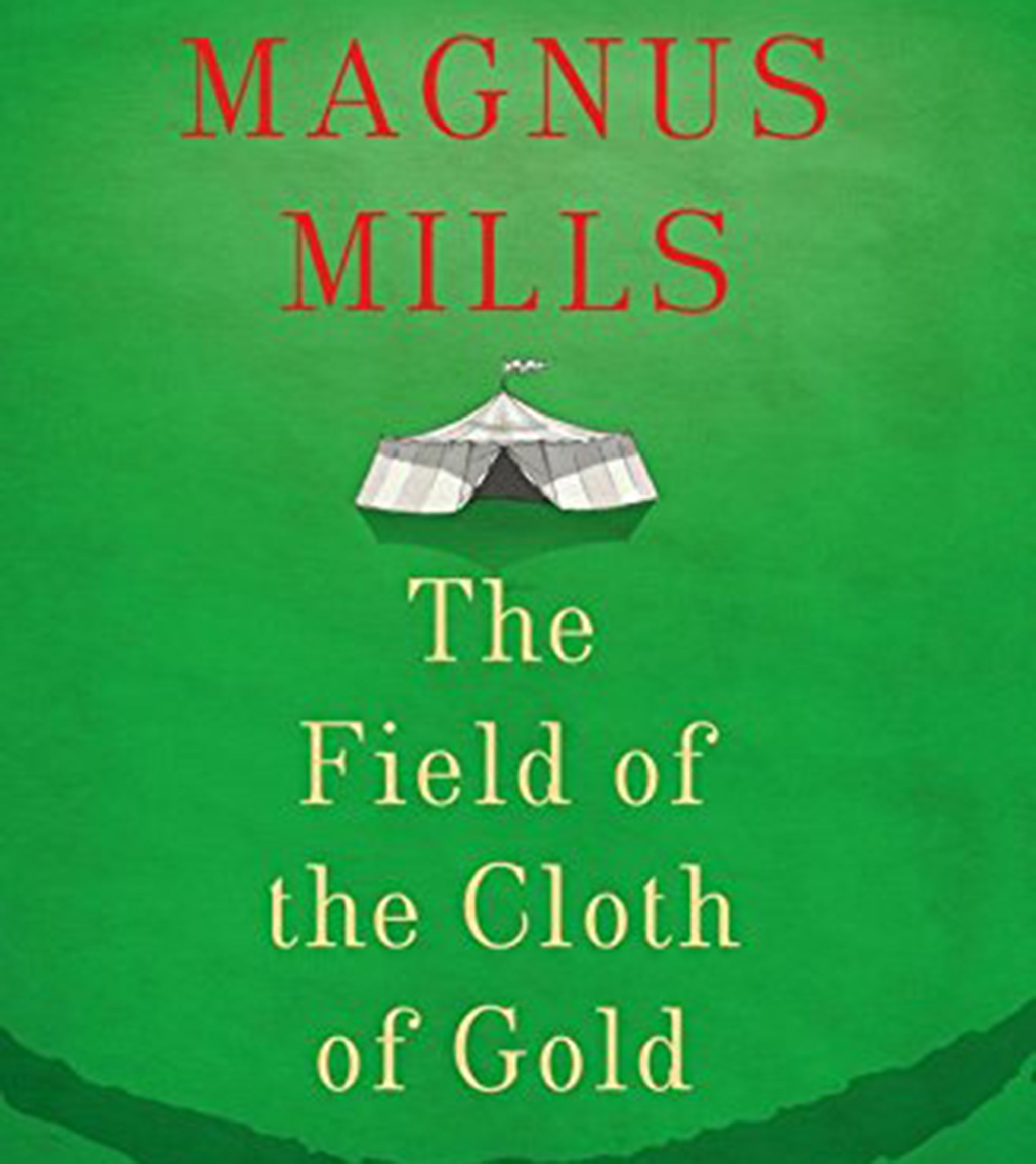The Field of the Cloth of Gold by Magnus Mills, book review: The master of nothingness
The title might suggest a Utopia, but the set up is more Purgatory than Elysium Fields

Etiquette is an insiders’ game. Rules are a way for a group to fence off its territory; but what happens when the rules are played out in the open? In his eighth novel, master of comic deadpan Magnus Mills invites us to observe the nuanced etiquette of settlers in the “Great Field” – a stretch of uncultivated grassland set outside time and space, waiting for “momentous events to unfold and come to fruition”.
As the peace of the early pioneers is disturbed by a series of newcomers from further afield, the camp acquires some of the trappings of civilisation: travel tolls, tent accessories, the persecution of minorities. The developments occur over the course of a summer, speeded up by the heat like bacteria multiplying in a Petri dish.
The story starts with news of a surplus of milk pudding, and this sets the tone for the texture of the prose itself: emphatically bland, yet surprisingly nourishing if taken with a pinch of salt. Confined to a language of stock archaisms and repeated mantras, the unnamed narrator describes the early “halcyon days” of the field. But things are never quite the same after the arrival of the urbane Thomas; his showy octagonal tent and long flowing robes are an affront to the narrator’s sense of decency. Subsequent settlers, though invariably polite, arrive equipped with long boats and vaguely Viking-like names. Tensions rise, and the construction of a small wall in a neighbouring camp provokes a minor raid – overnight, guy ropes are loosened and buckets of water are upturned in a fit of vindictiveness. Towards the end of the novel it seems that events might actually “come to fruition”, that we may even witness some atrocity. Though Mills pulls out every portent in the storyteller’s toolbox, he denies us any sense of suspense. We are left with the serene satisfaction that nothing will happen after all.
If all this sounds like your idea of hell, then perhaps you’re precisely the book’s target reader – the title might suggest a Utopia, but the set up is more Purgatory than Elysium Fields. Mills’s novels are often read as parables of pointlessness. Then again, life in the Great Field is far too cushy to allow for genuine nihilism, and while there are hints towards wider questions of chance, free will and altruism, any attempt to find a guiding philosophy just seems a little silly. Flaubert once expressed his desire to write a book “about nothing”: an aim doomed to failure as soon as stated. Mills, however, comes close. Love him or loathe him for it, you have to admit it’s quite an achievement.
Join our commenting forum
Join thought-provoking conversations, follow other Independent readers and see their replies
Comments